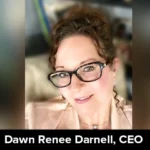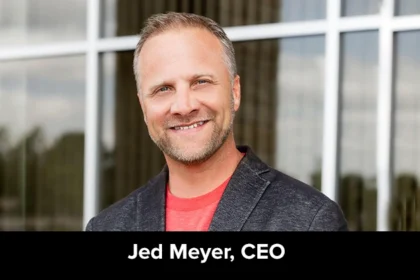Advocate in Corporate Governance in Saudi Arabia
A general impulse toward fairness, structure, and the idea that well-functioning systems can support bothintegrity and efficiency defined Bushra Abu Salem’s initial career. As an Advocate in Corporate Governance in Saudi Arabia, ‘Governance’ felt like a natural fit for her in her early career. As time passed, her perspective on governance evolved, shifting from following a set of policies and procedures to leveraging it as a strategic tool. With growing complexities in the field, Bushra takes pride in being a part of a discipline that is crucial in guiding sustainable, long-term success.
As one of the ‘Most Inspiring Women Leaders to Watch 2025,’ Bushra’s groundbreaking contribution to building a corporate governance framework from scratch makes her stand out from the rest in the corporate governance realm.
A Change in Perspective
While working with organizations like the International Chamber of Commerce, ESCWA, and the WTO, Bushra developed a global perspective on how thoughtfully designed frameworks can drive meaningful and positive change. That experience strengthened her interest in enabling organizations with rules and structures that not only help them meet obligations but also empower them to thrive.
For her, governance is a strategic tool that fosters a culture of accountability, builds trust with stakeholders, and supports informed decision-making. With the rise of ESG considerations, digital transformation, and increasing scrutiny from boards and regulators, the complexities in the field have increased. However, it is precisely this complexity that makes the work so rewarding.
Pivotal Decisions that Shaped the Career Trajectory
One of the pivotal moments that shaped Bushra’s career path was entering the contracting sector in late 2010. From there, being appointed as Board Secretary in 2015 and later securing a leadership role in 2017 became significant turning points in her professional journey. These roles exposed her to high-level strategic discussions and leadership dynamics, giving her a strong foundation and a deeper sense of purpose. Over time, she grew increasingly committed to bringing structure, transparency, and integrity into the corporate environment.
One defining moment in Bushra’s career was being entrusted with establishing a corporate governance framework from the ground up. “It was through that process that I came to fully understand corporate governance not merely as a system of rules, but as a relational and strategic function rooted in trust and leadership support,” said Bushra.
Every step of that journey, along with the influence of mentors and colleagues, strengthened her belief that governance is far more than a compliance exercise. It is a critical enabler of resilience, agility, and responsible growth.
Underlying Leadership Principles
Integrity, accountability, and clarity are three guiding principles of Bushra’s leadership approach. These values have shaped how she leads, designs systems, and supports leadership in making informed and ethical decisions. Together, these principles have helped Bushra adopt a value-driven and practical leadership approach, where she sees corporate governance and risk management not as constraints, but as a strategic technique.
Navigating a Complex Governance Challenge
Building a corporate governance framework from the inside out was Bushra’s biggest challenge. This experience solidified Bushra’s core belief that governance is most effective when it is practical, inclusive, and positioned as a strategic asset.
At that time, there was no clear blueprint, and aligning leadership around a governance vision in a fast-paced, project-driven environment was tough. Below are the strategic steps that she undertook to combat the challenges:
- Bushra actively listened and engaged with key stakeholders, executives, department heads, and board members to understand their views, concerns, and expectations. It helped her craft a framework that meets regulatory requirements and reflects the organization’s unique culture and operational needs.
- She also built a cross-functional management committee for decision-making, policy oversight, and strategic alignment across departments.
- Resistance is inevitable in driving change. Hence, Bushra prioritized clear communication, phased implementation, and early wins. Strategies like enhancing reporting mechanisms and refining the delegation of authority helped her overcome resistance to change.
Staying Ahead
As governance is a constantly evolving field, staying ahead is essential. There is a continuous shift in regulatory landscapes, stakeholder expectations, and global best practices, and staying ahead requires both structure and adaptability. “To remain informed, I stay closely attuned to regulatory developments by following updates from relevant authorities,” shared Bushra. Peer learning, participation in professional associations, regional forums, and governance roundtables provided her practical experience-driven perspectives. Continuous development is another way she is abreast of industry advancements and regulatory developments.
Secret to Cultivate Professional Competencies
While knowledge of regulations and frameworks is essential, it’s the broader competencies that truly define success in high-level positions. According to Bushra, ‘strategic thinking’ is paramount and requires alignment of governance frameworks with organizational strategy, risk appetite, and stakeholder needs. In her view, professionals in this field must develop communication competency to articulate complex concepts into clear, actionable guidance. The ability to influence, advise, build trust, navigate ambiguity, make balanced decisions, and adaptability are some of the other skills that governance professionals must cultivate to be ready for every emerging challenge.
Balancing Regulatory Compliance, Innovation, and Adaptability
Compliance is often perceived as rigid and rules-driven, and innovation thrives on flexibility. However, Bushra has identified that both can coexist and even reinforce each other when approached with the right mindset. One of her core strategies is embedding compliance into the organizational culture, rather than treating it as a separate or external control.
Approaches that Stood Out
Bushra believes in leading by example. When leaders consistently model integrity, transparency, and responsibility, it sends a clear and powerful message. Establishing clear structures and expectations is also critical, which includes well-defined roles, transparent policies, and accessible escalation mechanisms. Fostering an environment where ethical behavior is openly valued and where people feel safe to raise concerns is essential. Integrating ethics and accountability into performance management is equally important for her. Lastly, she feels recognition matters as it helps reinforce ethical behaviors.
Governance should enable performance, not just enforce compliance.










